Internal Family Systems Therapy
Do you often feel like you’re being pulled in multiple directions or feel conflicted, uncertain, or insecure? Do you ever feel like you’re being untrue to yourself? For example, a part of you may want to be in a relationship while another part of you might struggle for independence. As a result of these conflicts, you may feel frustrated, confused, stuck, and unclear about what you really want.
Do you struggle to build or maintain relationships? Do you dread interactions with certain people with whom you seem to have the same arguments again and again? This may leave you feeling sad, lonely, and afraid that your relationships will never change.
Are you troubled by emotions and impulses that don’t make sense? Do you feel like you are always fighting with or criticizing yourself? Do you sometimes even feel like it’s hard to like yourself and struggle to feel comfortable in your own skin? If you feel ungrounded or out of balance—or if you lack self-appreciation—you may be denying or rejecting certain elements of your personality, perhaps because you view them as selfish or socially unacceptable.
When these elements get out of balance or out of control, you may be more likely to experience conflict—both internally and in your career and relationships. As a result of this conflict, you may feel frustrated, anxious, depressed, ashamed, or even hopeless. You may also experience physical symptoms such as fatigue and pain.
Our Internal Systems Are Complex
Most of us have been led to believe a person has one mind and a unitary personality and we often identify with some of our most extreme thoughts and feelings. In actuality, there are many different parts within all of us. For example, the part of you that is good at taking control and completing tasks probably isn’t the same part of you that is good at comforting a grieving friend. Each part serves a purpose; working together, they allow us to achieve a sense of peace and balance.
Despite their usefulness, these elements may not always manifest in a way that we like. The part of you that keeps your life organized and allows you to accomplish your professional goals, for instance, may also be the part of you that freaks out when your child or partner loads the dishwasher “wrong.” Or the part that allows you to build deep and meaningful relationships with loved ones may make you more vulnerable to deception or mistreatment.
Parts of self emerge in response to the demands of life and are committed to their roles even if that sometimes means they are not serving your best interest. Over time, parts can become polarized, rejected, or even exiled, often in response to societal pressures or our own self-judgements. Similarly, difficult situations can force certain parts of our personalities to become even more extreme and polarized. Inevitably, this leads to conflict and emotional discomfort.
However, when parts of us work well with other parts of us, and each part’s deeper purpose is respected, our lives feel balanced and we become happier as a result. We are also often able to influence the outside world as we are better able to gain new perspectives and meet the demands of our lives through inner cooperation and harmony.
Restoring Balance With Internal Family Systems Therapy
Internal family systems is a new way of understanding how the mind works. It opens up a whole new way of dealing with difficult feelings. Some therapeutic approaches view the therapist as the expert who can help you ignore or overcome parts of yourself you don’t like. Parts therapy, in contrast, posits that every part of you has a place and that you are the most qualified person to guide your life. Also referred to as parts integration therapy, parts work therapy, or self therapy, this approach honors even those parts of you that you most dislike and helps you to come to respect them and transform your relationships with them.
The idea behind parts integration therapy is centuries-old. It can be traced back to the practices of shamans from various cultures who worked to retrieve individual aspects of the soul and return those who ail to wholeness.
The shaman’s view of healing has been shared by many modalities over the years including internal family systems therapy (or IFS therapy for short), which was conceptualized by Richard Schwartz, Ph.D. in the 1990’s. As a therapist trained in family systems, his model acknowledges the importance of retrieving the individual aspects of self, but also understands how the interactions among parts are crucial to achieving this level of healing. Essentially, he has taken principles often used for helping families, and applied them to individuals to reduce conflict and foster peace.
The IFS model has also been heavily influenced by client’s self-reports of their inner experiences and is a fundamental part of the model. The IFS therapist’s careful listening and trusting of clients and how they describe their inner worlds distinguishes IFS therapy as a deeply respectful approach and an effective therapeutic method.
As an experienced practitioner of internal family systems therapy, I can help you better understand your internal world and build a healthier relationship with every part of you. In therapy, I help you to make the paradigm shift from viewing yourself as a single personality to recognizing the different parts that make up your unique internal landscape and who you are.
I provide a safe and nonjudgmental space for you to explore your different parts. Together, we’ll seek to discover which elements of you are most active in certain situations. To that end, I’ll encourage you to pay attention to your thoughts, bodily sensations, and emotions to gain a fuller view of how they guide your behaviors.
We’ll also explore how each part of you interacts with each of the other parts and with the world. This can help reveal habitual thought and behavior patterns, taking the momentum and emotional charge out of them. As you begin to understand yourself better, you may start to act less reactively and more logically in difficult situations.
As we help parts move out of their extreme roles and come to trust the leadership of your central or higher self, the shifts you make in therapy may become integrated and begin to work automatically. Situations that used to send you over the edge emotionally won’t bother you as much, giving you an opportunity to respond with greater calm and choose with greater autonomy.
As you gain higher respect for each part of yourself and the purpose it serves, you’ll make more informed choices, experience less guilt, and develop a stronger sense of peace, power, hope, and self-love.
As you consider parts integration therapy, you may wonder. . .
What do you mean I have “multiple parts” inside me? Do I have multiple personalities or some other serious mental illness?
At first, becoming more aware of the different aspects of your personality can be disorienting, but having multiple internal parts is totally normal. It is not a disease, but the wonderful way in which we are all built. Our different elements allow us to achieve a healthy balance between all of our various needs and permit us to respond dynamically to situations in life.
Is internal family systems therapy just for families?
Because of its name, internal family systems therapy, many mistakenly believe that this model can only be used in the context of family counseling. It’s true that this modality is highly effective at helping families, couples, and others build stronger relationships, but parts work therapy is also a highly effective approach when delivered via individual counseling.
Does this modality really work?
Internal family systems therapy is classified as an evidence-based practice according to the Substance Abuse and Mental Health Services Administration (SAMHSA). To achieve this status, IFS therapy has been subjected to rigorous research and review which has proven its effectiveness in improving a person’s general well-being and in treating phobias, panic, generalized anxiety disorders, low self-esteem, and depression. It can even help to mitigate the mental health symptoms of physical health conditions.
The Power To Heal Lies Within
The person who you are at the core knows what you need to do to be happy, but internal imbalances can obscure that wisdom. By helping you to see your own innate knowledge and goodness, I can help you tap into this powerful truth.
If you’re ready to improve your relationships, boost your self-confidence, reduce depression, alleviate anxiety, and come to peace with who you are, schedule your first session today. Or schedule a free 30-minute consultation to help you find out whether counseling is a good option for you. For an appointment or questions, call or text (720) 984-9575 or email me at renee@liveyourknowing.com. You can also click the button below to schedule online.





